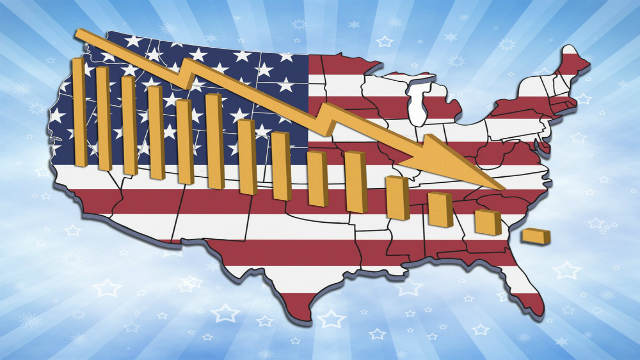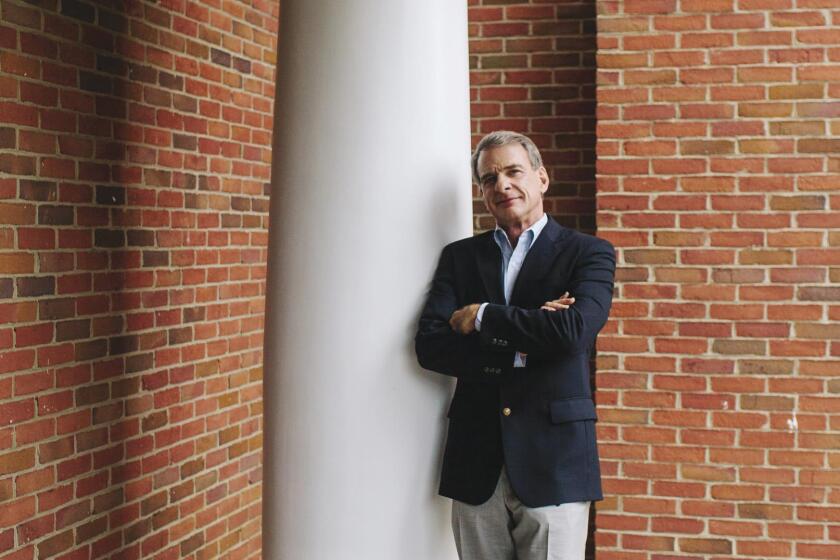So I have been debating a Christian philosopher-friend on the metaphysical possibility of the Trinity recently, and it has helped me clarify my thoughts here. I'm thinking that the only way to remotely parry the claim that it is metaphysically impossible is by appealing to something like trope theory. I tend to think such a solution doesn't work, but I have to think about it more. In any case, it seems like the Trinitarian is forced to appeal to trope theory, or at least forced to reify the the deity of the persons into a particular. I don't see how a Platonist, for example, can get out of the conundrum here. I'll explain and then welcome your thoughts on this.
Thursday, December 2, 2021
The Trinity is Contradictory
Wednesday, December 1, 2021
The Decline of America And the Need for Saints
A deep darkness is descending over the United States. We are going to
need saints and heroes to courageously stand up to the malevolence that
is spreading - we're going to need people much better than my weak self.
I'm not a Christian, but I lament that the light of Christ is dimming
precipitously in the States.
The family, the root of a healthy
society, is under attack. The absurdity that is gay marriage has been
codified into law. Divorce rates have rocketed above fifty percent. Tens of
millions of our young people are under the sway of violent and filthy
rap and hip hop music. We have reverted back to pagan gladiatorial games
(e.g. UFC) where people bloody and bash each others' heads for money,
fame, and the captivation of a depraved audience. Hormones are being
pumped into sex-confused kids in what can only be described as a futile
and diabolical rebellion against nature and reality. People are being
harassed, mocked and attacked for not insanely referring to singular
individuals with "they/them" pronouns. Academics moving against the
current can no longer speak freely without significant reprisal.
Grifters have largely succeeded in reinvigorating once-dormant racial
tensions. Demonization of the other side is now the modus operandi of
politicians on both sides. Our mainstream news outlets have been generally exposed as
unreliable propaganda outlets at best, and state pravda at worst. The
state's tentacles are intruding into spheres once thought by Americans
to be sacred and one's own. Mental illness and suicidal idealization have
probably reached rates never before seen in America's history. It seems like every week some mentally disturbed individual shoots up random people at a local church, store, or school. We are in the midst of an opiod epidemic; and one state has already legalized meth and cocaine
use - a moral monstrosity which would have been unthinkable even a few
years ago. The gap between the rich and the poor is growing larger, with our wealthiest obscenely worth in the hundreds of billions. The
authoritarian and orwellian Chinese wolf is prowling ever closer and may
well overtake us as the world's superpower soon. Inflation is out of
control...The list goes on.
But the biggest problem of all facing America -- the root problem, if you will -- is the same one that Aleksandr Solzhenitsyn's elders spoke of as the reason for Russia's twentieth-century calamities: “Men have forgotten
God; that’s why all this has happened.” [1] We Americans have forgotten God. We as a nation have lost the sense of the transcendent,
and have devolved into a sensuous people bereft of a grander compass
with which to steer our lives.
It is in such times of ever
encroaching evil that we need saints, bodhisattvas and alter Christuses
to emerge from the shards of a nation in its death throes, not only to
help cure the ails of the present order, but to rekindle in the American
heart the sense of a divine transcendence, a divine transcendence which
alone can infuse our lives with meaning and purpose. I do not, or
rather, try not, to despair because I believe in this transcendent
Logos. So I can rationally hope, along with Tolkien, that "From the
ashes a fire shall be woken, A light from the shadows shall spring."
------------------------------------------------------------------
[1] Solzhenitsyn, Aleksandr. “Men Have Forgotten God" (Speech, 1983), National Review. https://www.nationalreview.com/2018/12/aleksandr-solzhenitsyn-men-have-forgotten-god-speech/. The following words are particularly powerful: "More than half a century ago, while I was still a child, I recall hearing a number of older people offer the following explanation for the great disasters that had befallen Russia: “Men have forgotten God; that’s why all this has happened.”Since then I have spent well-nigh 50 years working on the history of our Revolution; in the process I have read hundreds of books, collected hundreds of personal testimonies, and have already contributed eight volumes of my own toward the effort of clearing away the rubble left by that upheaval. But if I were asked today to formulate as concisely as possible the main cause of the ruinous Revolution that swallowed up some 60 million of our people, I could not put it more accurately than to repeat: “Men have forgotten God; that’s why all this has happened.”
[2] The above image is taken from https://bigthink.com/wp-content/uploads/2012/06/origin-174.jpg?w=640, and I claim no rights to the image; it is copyrighted to its owner.
Monday, April 19, 2021
William Lane Craig, Christian Apologists, and Reasonable Unbelief
In this article, the Christian philosopher and apologist, William Lane Craig, responds to a question on the fate of those who reject Christ. Craig implies that there is no reasonable unbelief in Christ, at least for those to whom the Gospel has been accurately presented. He states the following:
Wholly apart from the question of whether they ignored apologetic evidence for Christianity, what you need to keep in mind is that, even more fundamentally, they suppressed the witness of the Holy Spirit to them that the Gospel is true. They repudiated God Himself and His testimony to them of the truth of Jesus’ teaching. They have thus separated themselves from God...He did: the witness of the Holy Spirit to the truth of the Gospel. “Many of these people came from Christian backgrounds yet chose not to follow it because the evidence they had didn’t convince them [this is the questioner being quoted].” No, they chose not to follow it because they resisted the Holy Spirit (wholly apart from whether they resisted the apologetic evidence).
Quite frankly, I see this as evidence of how religion can corrupt the mind of even great intellects. Craig has a luminary intellect, but he has, regrettably, deluded himself by orthodox Christianity and its concomitant proclivity towards tribalism. So deeply has he deluded himself that he presumes to psychoanalyze every unbeliever who rejects the Gospel and its evidences (when correctly presented). It seems like Craig is still spiritually immature, and has failed to transcend religious tribalism. By my lights, it is incredible to claim that there is no reasonable nonbelief in Christianity for people sufficiently well apprised of its doctrines and evidences. There are a whole host of things taught by Christianity that can be reasonably assailed by the nonbeliever, and used in a cumulative case against Christianity. Are we really to believe that sufficiently well-informed people cannot have reasonable grounds for being at least agnostic about -- not even outright rejecting -- the Trinity, the Incarnation, the multiple miracles littered throughout the Bible (written at least decades or hundreds of years after the purported events), the genealogies of Genesis (which imply that humans are only a few thousand years old, contradicting the results of modern science), the atrocities in the Old Testament, the fiction in the Old Testament (like angels having sex with humans), the doctrine of eternal hell, etc? Is it really unreasonable to believe, along with such encyclopedically erudite historical Jesus historians as Dale Allison and Wolfhart Pannenberg, that there is substantial evidence Jesus falsely predicted the end of the world would occur in the lifetime of his disciples? Are we really to believe that people like Antony Flew, Quentin Smith, J.L Mackie, William Rowe, Felipe Leon, Bill Vallicella, al-Ghazali, etc., have all suppressed the truth of Christianity in unrighteousness? No -- this is not probable in the slightest. Christian apologists, even ones with three letters after their names, need to start start understanding that there are more things on heaven and earth than are dreamt of in their religion. Life is not black and white. The same evidence can be perceived as having different force by two people who occupy reasonably similar epistemic positions. To acknowledge this is simply to acknowledge the real world which we inhabit. Very epistemically well-positioned theistic philosophers of religion disagree on the force of various arguments for the existence of God all the time, and presumably not out of ill will. Why can't many Christian apologists extend the same grace to nonbelievers? The answer lies in the fact that they lack the requisite intellectual humility to do so. They are human, all to human. And their religious tribalism sometimes gets the better of their reason. This is what I believe is happening with Christian apologists who say stuff like the above.


